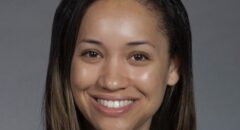
Clinical trials are one of the foundations of modern medicine. Data from clinical trials provides insights on how people are likely to respond to a treatment, which helps doctors understand when to use the treatment, how to advise patients who may receive it and what outcomes to expect from it.
“If we don’t have adequate representation in the trial, we can’t be sure how the treatment will affect people from different backgrounds,” says Zul Surani, associate director of Community Outreach and Engagement at the Cancer Research Center for Health Equity at Cedars-Sinai Cancer.
“There are historically marginalized communities all around us. Striving for equity means ensuring all persons get quality care. Clinical trials are a major part of that, as they can hold the key to a healthier future.”
Why diversity matters in clinical trials
As valuable as clinical trials are, they have long been limited by one shortcoming: a lack of ethnic, racial, sex and gender diversity. Participants have been mostly white, heterosexual males.
“If we’re testing treatments almost only on white males, we’re left with big gaps in knowledge,” says Dr. Robert Haile, director of the Cancer Research Center for Health Equity. “Genetics, environmental factors, lifestyle, gender and ethnic origin may all influence how individuals react to a drug.”
Study sponsors look for what’s called “generalizability.” This is when a trial is run with so many participants that if the drug works for most of them, researchers can assume it’ll work for most of the general population, too. That’s harder to determine if your trial volunteers don’t represent the whole community. For example, Black patients often need a different dose of drugs that treat asthma, blood pressure or heart disease than non-Hispanic whites, Asians or Hispanics do. Sometimes they need a different drug altogether.
RELATED: How Old Beliefs About Clinical Trials Are Holding Us Back
How medical mistrust has affected clinical research
There are many examples of inequity in healthcare that go beyond patients’ ethnicity or race.
“There are historically marginalized communities all around us,” says Dr. Haile. “Striving for equity means ensuring all persons get quality care. Clinical trials are a major part of that, as they can hold the key to a healthier future.”
For that reason, Surani, Dr. Haile and the rest of their team at the Cancer Research Center for Health Equity are committed to making sure more people know about clinical trials and understand their benefits.
“It’s always difficult to recruit large numbers of volunteers for clinical trials,” says Surani. “It’s even harder to
recruit volunteers from groups that are underrepresented in clinical trials because of limited access or mistrust.”
For example, many study sponsors recruit patients from large academic medical centers, but the patient populations at those centers don’t necessarily represent the general population in the surrounding communities. Underrepresented groups may lack insurance and stay away from these medical centers because they think they can’t get treated there. Undocumented persons may be worried about the consequences of registering at a hospital.
“We also see mistrust of the healthcare system in the LGBTQIA+ community because many of those individuals have had bad experiences with it,” says Surani. “A few important cancer screenings also are framed in historically gendered language, and LGBTQIA+ individuals don’t necessarily feel included in those conventional framings.”
Tailored outreach strategies
Recognizing the unique concerns of LGBTQIA+ patients, Surani and Dr. Haile are involved in plans for a dedicated LGBTQIA+ health center at Cedars-Sinai. However, there is no one-size-fits-all solution to increasing the participation of underrepresented groups in clinical trials.
“We have to tailor our approach to each individual community,” says Dr. Haile.
That includes working with dedicated outreach professionals as well as organizations that are trusted by the local community and serve as hubs for it, such as churches, barber shops, schools or nonprofit groups.
“We’ve seen the impact it makes,” says Surani. “Korean Americans have noticeably low rates of breast cancer screening. Working with local Korean churches and getting their input on research protocols, we’ve been able to bring this lifesaving preventive service to more people.”
RELATED: The 4 Stages of Clinical Trials And What They Mean
Community partners matter
Another success story involves the center’s work with Federally Qualified Health Centers (FQHCs). These community-based providers receive federal funding to offer primary care in underserved areas.
South Los Angeles has a higher incidence of late-stage lung cancer diagnosis than any other part of Los Angeles County. FQHCs now bring services to 40,000 individuals in the Black community in South L.A.
“By being present and working with L.A.’s diverse communities, we develop trusting relationships with the healthcare system and open the door for discussions about the importance of joining clinical trials,” says Surani.
An optimistic outlook on the future of clinical trials
Cedars-Sinai’s efforts are part of a nationwide movement to broaden clinical trial participation, a challenge long recognized by health agencies. In 1993, the National Institutes of Health (NIH) adopted a policy requiring all federal grants for clinical research to include women and marginalized individuals. The FDA later introduced policies to analyze the barriers for—and increase participation among—more diverse participants.
While the challenge persists, Surani and Dr. Haile are optimistic. They agree that there’s already been a positive change and that there’s more awareness than ever about the importance of diversity in clinical trials. And greater awareness means more progress is on the horizon.
By Cedars-Sinai








